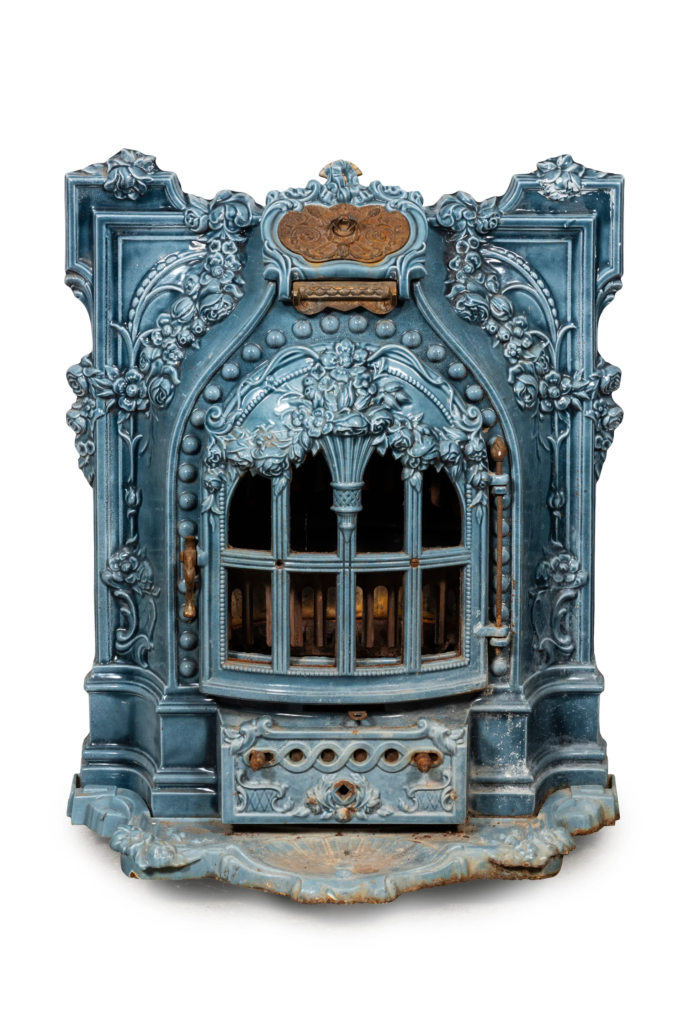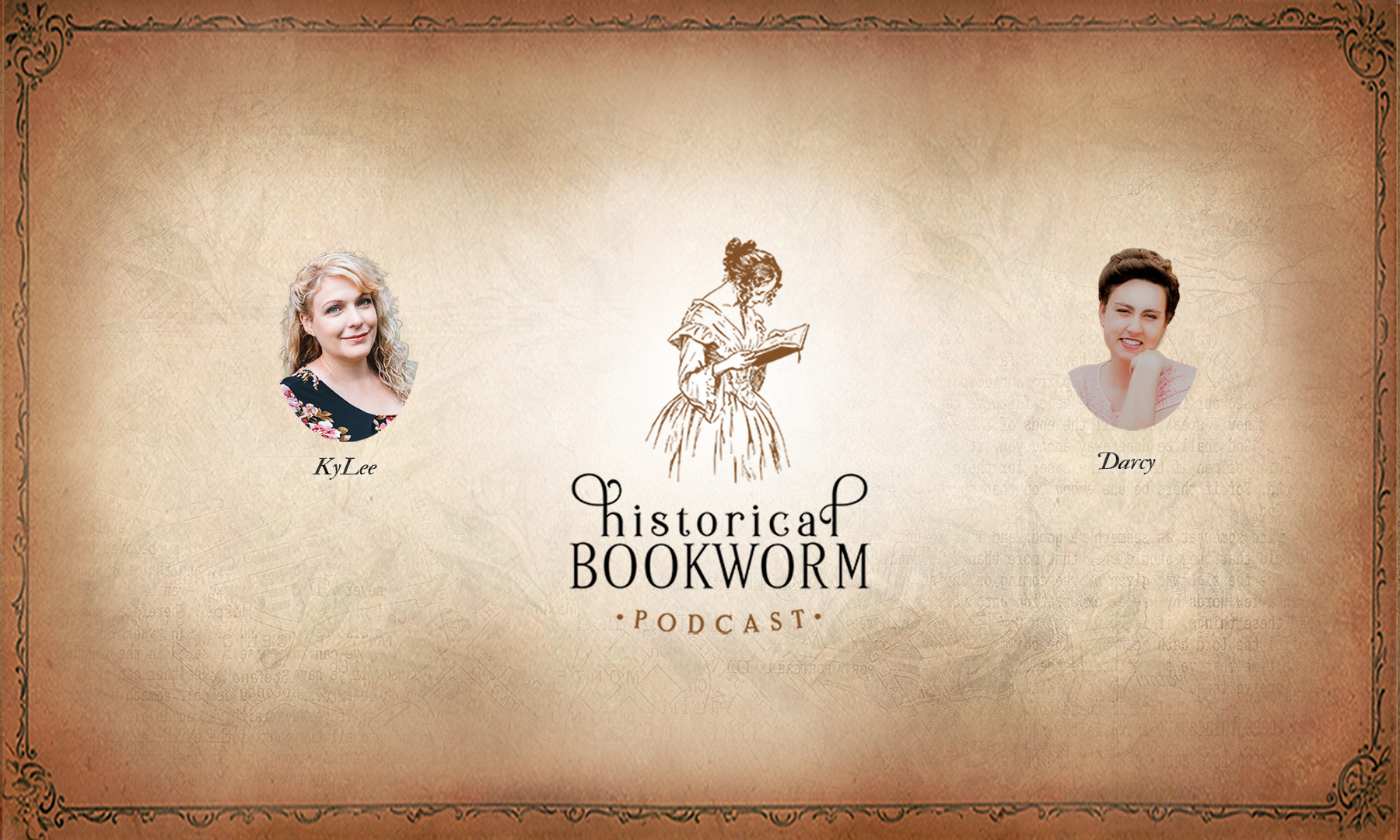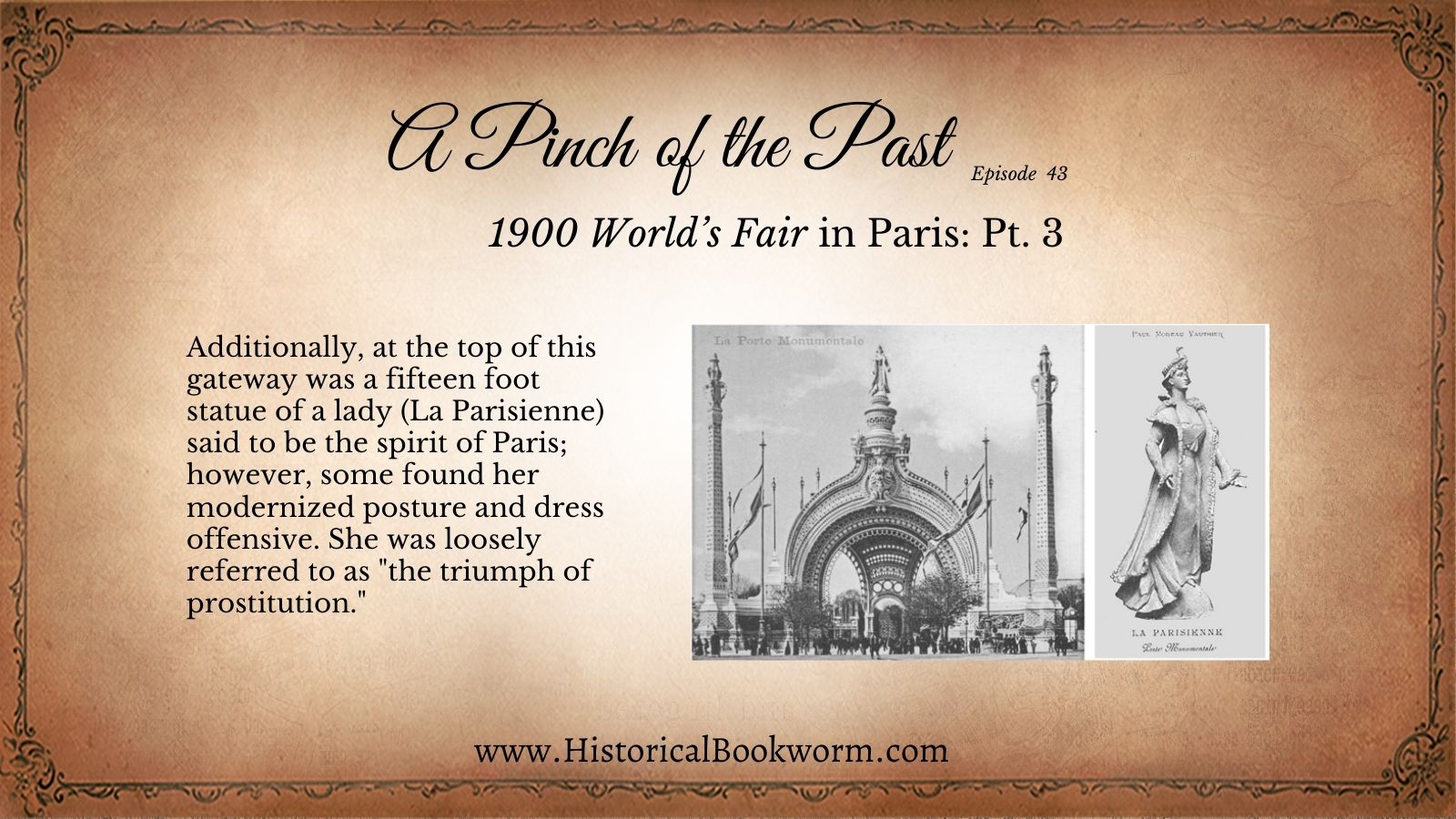The audio version of this article was first shared in Episode 43: A Bookchat about A Gem of Truth with Kimberley Woodhouse & a Review of The Number of Loveby Rosanna M. White
In this Pinch of the Past we will be wrapping up the Paris Exposition Series with a look at what critics of the day had to say about the expositions and some numbers regarding cost and attendance.
Criticisms: Because it can’t all be moonlight and roses.
The Paris Exposition was said to be overly ambitious and costly undertaking, and not all critics believed this was best for the country at the time.
One such critic as Melchior de Vogué, a supporter of the 1889 Eiffel Tower. He criticized the architecture used throughout the fair stating that:
In 1889, iron bravely offered itself to us naked and unencumbered, asking us to judge its architectural potential. Since that time, it seems as though iron has experienced the shame of the first man after its original sin, and feels the necessity of covering its nudity. Today, iron covers itself with plaster and staff. It hides itself in casings of mortar and cement.
Some complained the buildings were to old fashioned for their new age exhibits or not sophisticated enough.

The Porte Monumentale received heavy criticisms. To give you some vivid imagery of what the gateway looked like I pulled this quote from Architectuul.com.
“The gateway was consisted of a dome and three arches and as a whole adorned with Byzantine motifs and Persian ceramic ornamentation and colored glass cabochons. The gate was covered with 3200 blue and yellow small electronic lights.”
While this sounds beautiful it was said to be “lacking in taste.” Some actually referred to the gateway as La Salamanda because it so resembled the stocky and intricately designed salamander-stoves of the time.

Additionally, at the top of this gateway was a fifteen foot statue of a lady (La Parisienne) said to be the spirit of Paris; however, some found her modernized posture and dress offensive. She was loosely referred to as “the triumph of prostitution.”
Admission charges and cost

One admission ticket costed one Franc. At the time, the average hourly wage for Paris workers was between 40 and 50 centimes. According to Chanvrerie.net, 100 centimes = franc. So, you would have to save up to two day’s wages for one ticket to the fair.
Additional admission fees for popular attractions were usually between 50 centimes.
Meals averaged at about 2.5 Francs
The Paris Exposition budgeted 100-million French Francs (20 million from the French State, 20 million from the City of Paris, and 60 million from the expected admissions, backed by French banks and financial institutions.)
The official final cost = 119-million Francs.
Admissions fees collected = 126 million Francs.
Unplanned expenses = 22 million Francs for the French State, 6 million Francs for the City of Paris
Total cost = 147-million Francs, or a deficit of 21 million Francs.
This however offset the cost to a degree, the long term additions to Paris’ infrastructure, including new buildings and bridges, additions to the transport system, two new train stations, and the new facade and enlargement and redecoration of the Gare de Lyon and other stations.
Other data
Exhibitors = 83,000+
Prizes of various degrees awarded = 42,790
127 congresses had attracted over 80,000 participants
The Exposition Eniverselle of 1900 was the last of its kind hosted in France. There were three following fairs in France, however these were not truly World Fairs because their focuses were on decorative arts and colonial possessions.
So, there you have it. A little taste of the World’s Fair in Paris. As always, I hope you’ve enjoyed this Pinch of the Past.

